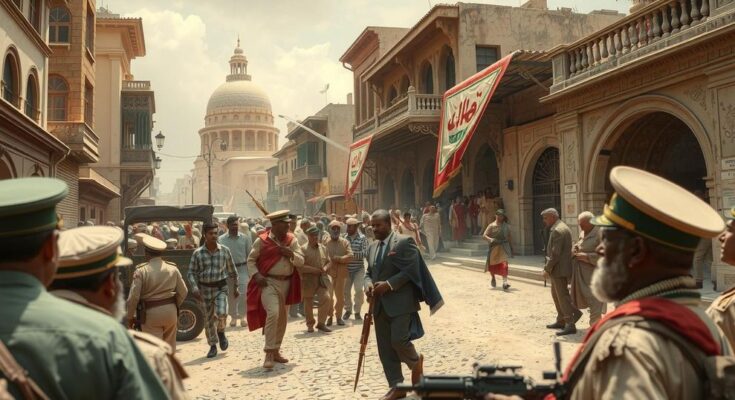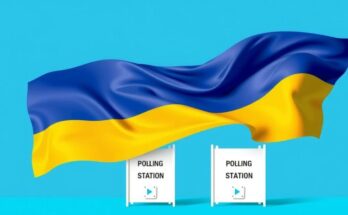Chad conducted legislative, provincial, and local elections on Sunday, highlighting the political transition following three years of military rule. Notably boycotted by opposition parties, the elections favor candidates tied to Marshal Mahamat Idriss Itno, who has faced allegations of electoral fraud and a repressive regime. Amid threats from Boko Haram and media restrictions, the electoral process is marred by concerns over legitimacy and integrity as it seeks to restore democracy.
Chad held elections on Sunday for legislative, provincial, and local positions, which the government characterizes as a concluding step in a political transition following three years of military governance. However, these elections are being boycotted by the opposition, effectively paving the way for candidates aligned with Marshal Mahamat Idriss Itno, who assumed power via military means in 2021 and secured a five-year term in a contentious presidential election last May.
Opposition leader Succes Masra, during a Facebook live session, urged citizens to boycott the elections, asserting that the current political system is predicated on “lies and electoral theft.” Further complicating the vote, the Democratic Party of the Chadian People reported the disappearance of over a thousand ballots in Bongor, inciting calls for vigilance against potential fraud by the ruling MPS party.
Polling commenced at 6 am and concluded at 6 pm local time, with about eight million registered voters, monitored by international observers and political party representatives. Voting was initiated early for military personnel, police members, and nomadic populations. This electoral process occurs amidst ongoing attacks by Boko Haram in the Lake Chad region and heightened scrutiny of Chad’s involvement in the conflict in Sudan.
Marshal Itno’s regime outlines the elections as pivotal for reinstating democratic governance. He rose to power following the death of his father, Idriss Deby Itno, who had ruled Chad for three decades with an iron grip. Elections had previously been delayed due to jihadist threats and health crises, with the last legislative elections occurring in 2011. Critics maintain that the current administration has adopted increasingly autocratic measures, with Masra referencing the violent opposition unrest in October 2022.
Despite government efforts to promote the elections, the process takes place amid a near-total media blackout, attributable to a strike by online journalists protesting governmental restrictions. Furthermore, private media outlets have been barred from covering election day due to denied financial support customary for such events.
Chad has been under military rule since 2021 following the death of long-time leader Idriss Deby Itno. His son, Mahamat Idriss Itno, took control and has since faced significant opposition claiming the elections and political landscape lack legitimacy. The electoral process has been marked by boycotts from opposition parties, asserting their exclusion from fair political participation and alleging electoral fraud during previous elections. With Chad’s political environment being influenced by jihadist violence and international relations challenges, these elections are viewed by the government as a crucial step towards restoring democracy, despite widespread skepticism and claims of autocracy from the opposition.
In summary, Chad’s recent elections reflect the complexities of navigating a transitional political landscape after years of military rule. The opposition’s boycott highlights the persistence of mistrust towards the ruling government, compounded by allegations of electoral fraud and suppression of dissent. The significant challenges facing the electoral process, including security threats and media restrictions, suggest that Chad’s path towards consolidating democratic governance remains fraught with obstacles and scrutiny.
Original Source: www.barrons.com




